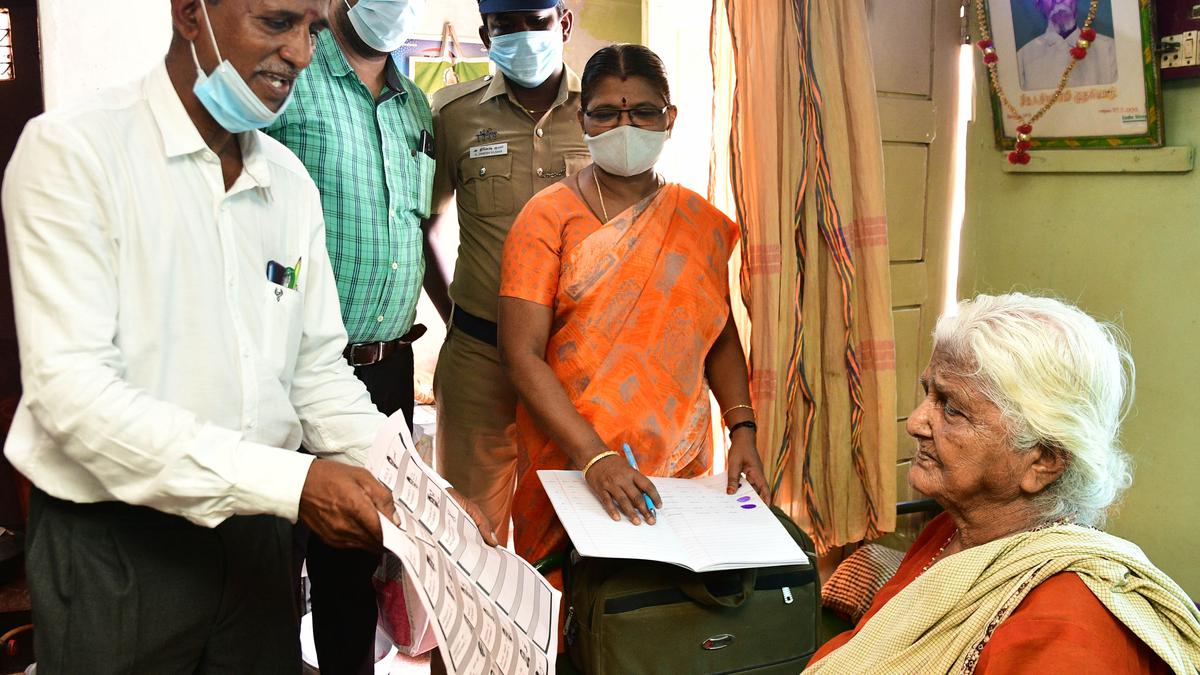
All about the vote-from-home facility in the Lok Sabha elections | Explained Premium
The Hindu
The Hindu explores the vote from home facility, how it works and who is eligible to avail of it.
The story so far: Preparations are under way for India’s “celebration of democracy,” the Election Commission said recently while announcing the seven-phase poll dates for the 2024 Lok Sabha elections. The “mammoth exercise” will set in motionthe “world’s largest electoral movement of man and material.” To make the process inclusive and accessible, the ECI has, for the first time in the history of the Lok Sabha elections, extended its ‘vote-from-home’ facility to Persons with Disabilities (PwD) and senior citizens aged 85 and above. This move would allow more than 85 lakh senior citizens and 88.4 lakh persons with disabilities to cast their votes through postal ballots.
“This is a great initiative, especially for voters with disabilities and for those who have high support needs,” says Dr. Satendra Singh, a doctor and disability justice activist. While well-intentioned and promising, the policy may have to solve for awareness gaps and procedural snarls, such as filing forms in person.
Age and disability inform the voting experience. Efforts to make participation inclusive thus far have been contained to the polling site, with a focus on setting up ramps, separate queues, wheelchairs and parking facilities. The postal ballot-home voting facility was amended to include senior citizens and PwD candidates; the benchmark disability should be not less than 40% of the specified disability as certified by the concerned certifying authority.
“Generally the tendency has been that the senior citizens want to participate in the process and walk to the booth. But this time, we have given them options to vote in their homes,” Chief Election Commissioner Rajiv Kumar said. Those who opt for VfH this year are not eligible to vote directly at the polling station on polling day.
The scheme is also “useful” as senior voters may not prefer to step out during the summer heat, an Andhra Pradesh official told The Hindu this week. The Lok Sabha elections will be held between April 19 and June 1, when spells of heatwaves are likely overtake most parts of the country.
The VfH facility was previously tried out during Assembly elections in select regions, allowing PwD, senior citizens and people affected by COVID-19 to vote from home. The ECI this year has, however, increased the upper age limit of elderly voters, from 80 to 85 years, a somewhat arbitrary change in threshold, Dr. Singh notes. In the past 11 Assembly elections, the scheme has helped almost 3.30 lakh people with disabilities and electors above 80 years, according to a Hindustan Times report.
The ECI also extended the postal ballot option to media personnel covering ‘polling day activities’ who have authorisation letters from the Election Commission, and those part of essential services such as metros, railways and health care. The option is also open for service voters, such as personnel of the armed forces posted away from their hometowns, Central Armed Police Forces personnel deployed away from home, Central and State police personnel on election duty, and polling personnel and embassy staff on postings.

The girl, who was admitted to Aster CMI Hospital with alarming breathlessness and significant pallor, was diagnosed with Wegener’s Granulomatosis (now known as Granulomatosis with Polyangiitis or GPA), a rare autoimmune condition that causes spontaneous bleeding in the lungs, leading to acute respiratory failure.

ACB files case against IPS officer N. Sanjay in Andhra Pradesh. The official is accused of manipulating the tender processes for awarding contract for development and maintenance of AGNI-NOC portal, and conducting awareness meetings for SC/STs. It is alleged that the total value of properties stolen, or involved in the case is estimated at ₹1,75,86,600.









